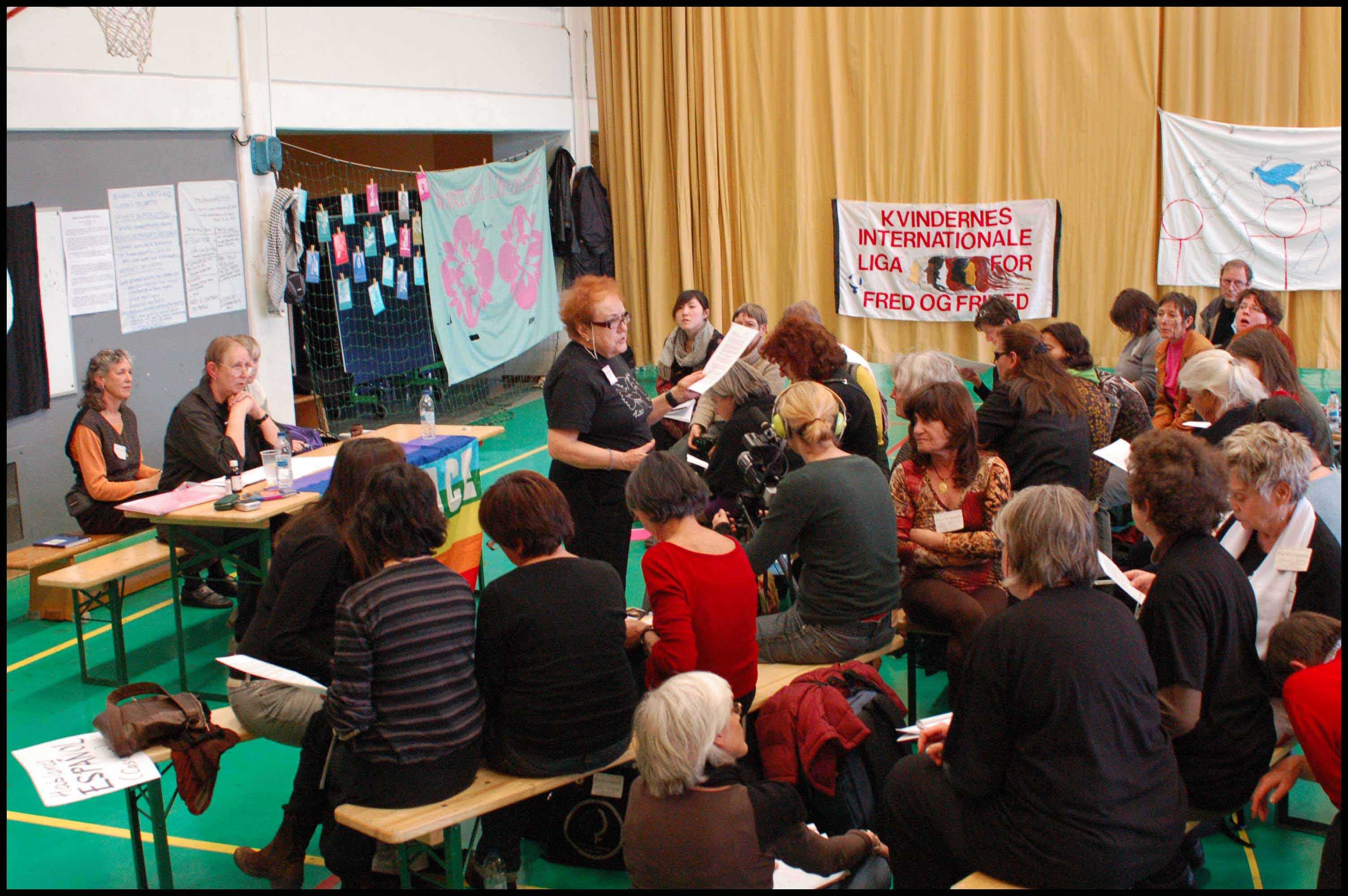Menu

The workshop: Strasbourg, April 3, 2009
NATO = Security? Gender questions
Some 40 people communic
ated in 5 languages in a noisy sports hall far outside the central city. It was the only possible location for the organizers and possible at all because of the great support from local peace activists determined that voices countering the military might of NATO must be heard.
Meeting in the gymnasium.Photo: Lena Horleman
The 2 hour workshop offered by the Women’s International League for Peace and Freedom, Women in Black against War, with Women and Life on Earth e.V. was the only one with a gender analysis of NATO and the growing militarism of the European Community. Is NATO a 'women's issue'? After the events Cynthia prepared a useful summary of the workshop with quotes from the papers, and conclusions from the small group discussion on what actions could and should be taken for peace in Europe and beyond. Download the nine page summary here:
THE FEMINIST CASE AGAINST NATO & EU MILITARIZATION
The papers submitted for the workshop were collected by Cynthia Cockburn of Women in Black London and summarized at the workshop in four thematic presentations:
1. The feminist case against NATO as an international actor. (Patriarchal 'bloc' mentality, nation states/territories/borders, powerful 'protector'/protected-subordinated, belligerence not dialogue etc. - international policies and politics in which women do not find their interests represented.)
2. The feminist case against NATO's military installations in our countries. (Military bases and airfields, nuclear risk, arms manufacture, pollution of land, prostitution/trafficking.)
3. The feminist case against NATO / European Union's militarization of everyday life and culture in our countries. (Diversion of funds from social provision to defence budgets, militarization of men, youth / violence / media etc)
4. The feminist case against NATO as a perpetrator of wars. (Effects of war on women in countries attacked by NATO forces, with particular ref. to Afghanistan. And the way it prompts women in war zones to organized resistance)

